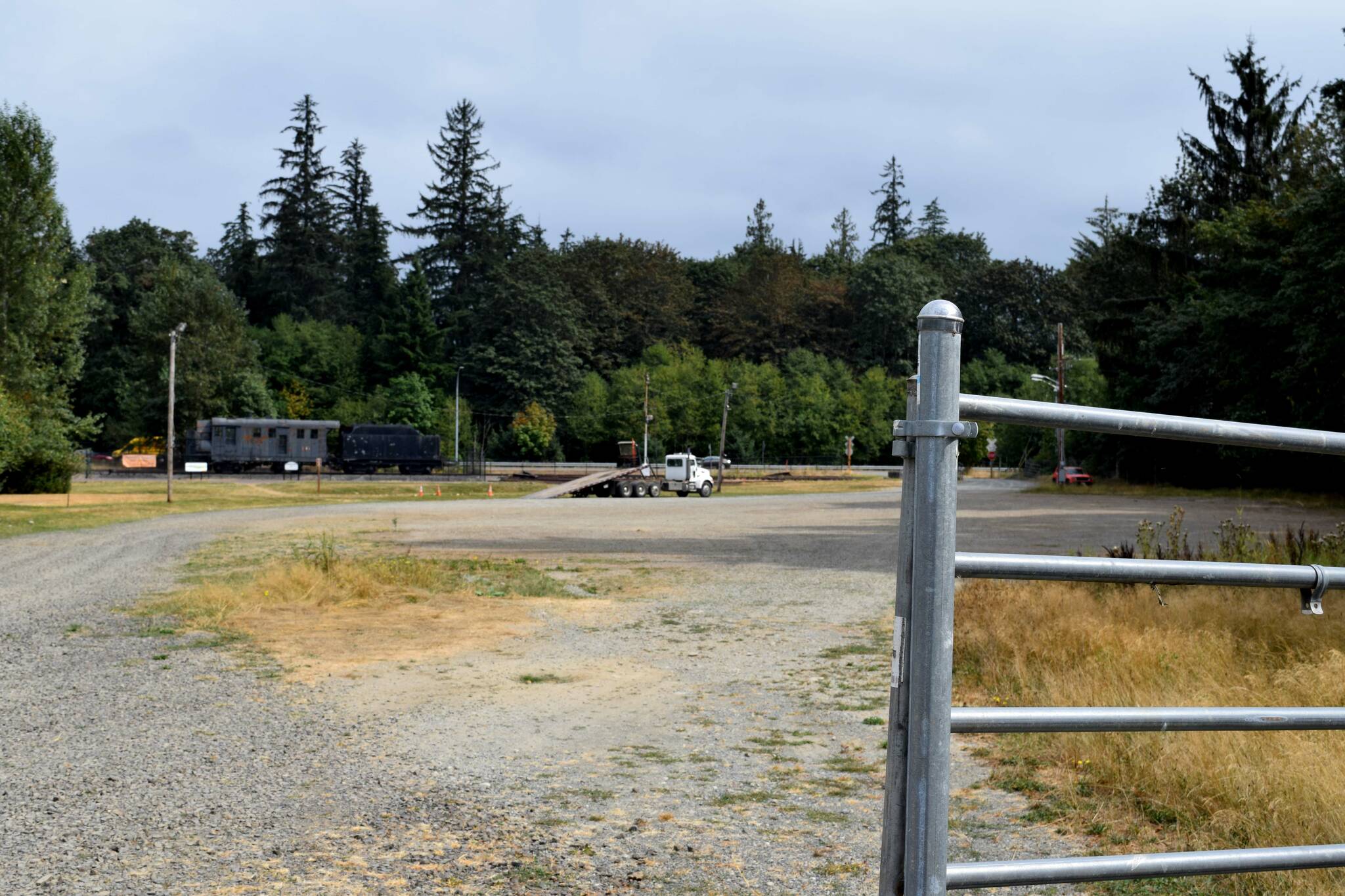Snoqualmie City Councilmembers unanimously punted on approving a new development and lease agreement earlier last month that would have paved the way for the Pacific West Rail Foundation to build a new model train museum near downtown.
Now the project, which initially received overwhelming support from the council, is likely headed for a delay. Snoqualmie Tribal members, who have concerns over the proposed location of the project due to its proximity to culturally significant lands, have asked for a six-month pause.
“We’re not asking for anything over and beyond,” Tribal Secretary Shauna Shipp-Martinez told the council during public comment. “Just time to be able to continue that discussion and hopefully come up with a better outcome than what is being proposed today.”
Construction of the museum is slated for Gateway Park, a vacant gravel lot at the corner of Railroad Avenue and Snoqualmie Parkway. Tribal members fear development would disrupt the Two Sisters Return and Snoqualmie Falls — nearby sites sacred to the Tribe as part of its creation story.
Snoqualmie Tribal Councilmember Chrissiee Sparling said the Tribe does not oppose development in most of the Valley, but the land around Snoqualmie Falls is an exception.
“That’s our place of creation. That’s where our two sisters returned. That’s our space. We fought really hard to get it and we continuously fight for its protection,” she told councilmembers. “That’s really all we’re holding on to. We don’t hold onto much else.”
For now the project will be returned to the city’s finance and administration committee as discussions on the plan continue, said Gail Folkins, a city spokesperson. She did not specify how long before the project returns to the full council, but noted the Tribe will be involved.
“The city has and will continue to meet with the Snoqualmie Tribe on opportunities for collaboration and items of mutual interest,” Folkins wrote in an email.
City leaders have been working on the museum project for a year, after they were approached by Peter Hambling in September 2022. Hambling formed the nonprofit Pacific West Rail Foundation (PWRF) to oversee completion of the project and agreed to a memorandum of understanding with the city last December.
Hambling, a Medina millionaire, is the creator of a locally famous 3,700-square-foot model train valued at $4 million. His group has proposed building a 20,000-square-foot museum for his model at Gateway Park using private funds.
The delayed 50-year development and lease agreement would have given PWRF the greenlight to start foundational work for the project, such as finalizing the design, getting construction permits and finding donors. Under the agreement, PWRF would have had five years to raise funds for the project.
A voicemail left for PWRF project manager Rob Nelson seeking comment was not returned.
Snoqualmie City Councilmembers believe the museum would become a major tourism draw, delivering more tax revenue for the city and additional foot traffic to downtown businesses.
A museum also makes use of a long-vacant property. Gateway Park, once planned to be built into a park, has remained mostly unused outside of overflow parking, equipment storage and an annual Christmas tree lot.
City leaders say a museum could help bring more traffic off of Snoqualmie Parkway and State Route 202 into downtown, noting it meshes well with existing train-themed facilities downtown managed by the Northwest Railway Museum.
Richard Anderson, executive director of the Northwest Railway Museum, said the organization had “no opinion” on the project during a phone interview last month.
“The city is asking us to support it, the Tribe asked us to condemn it,” he said.
Tribal leaders first publicly expressed their opposition to the project in July. In an open letter, Tribal Chairman Robert de Los Angeles wrote to Mayor Katherine Ross noting they were surprised the city was considering a new lease agreement and was considering action on the project.
“The fact the Tribe was not consulted in advance on this apparent decision by the city to lease the land is egregious,” he wrote. “The Tribe has expressed on multiple occasions that the Tribe does not support this construction project due to the cultural sensitivity of the area.”


